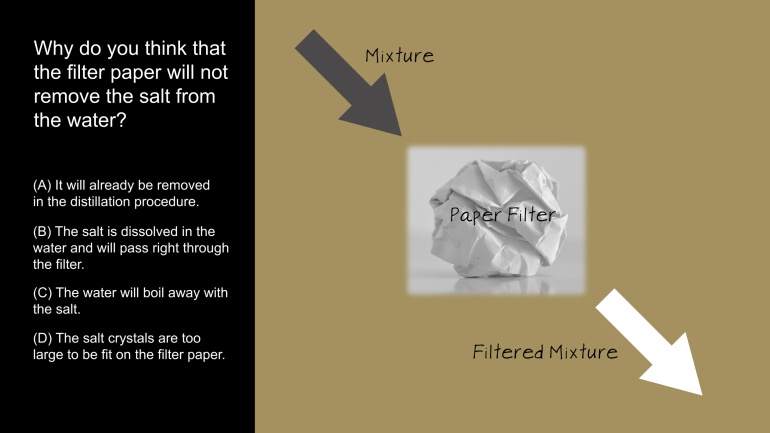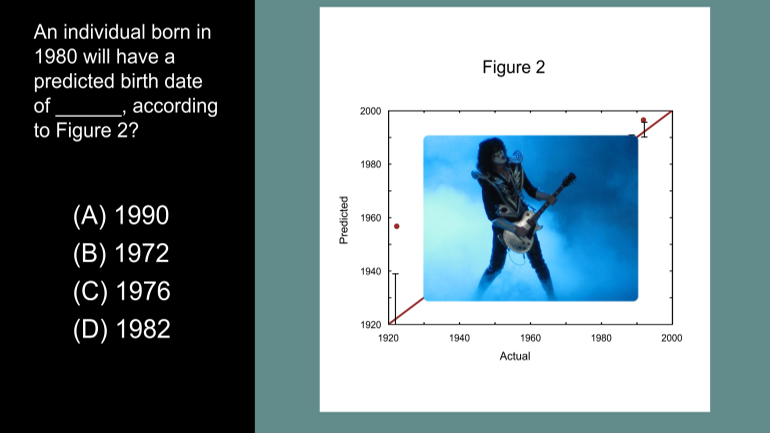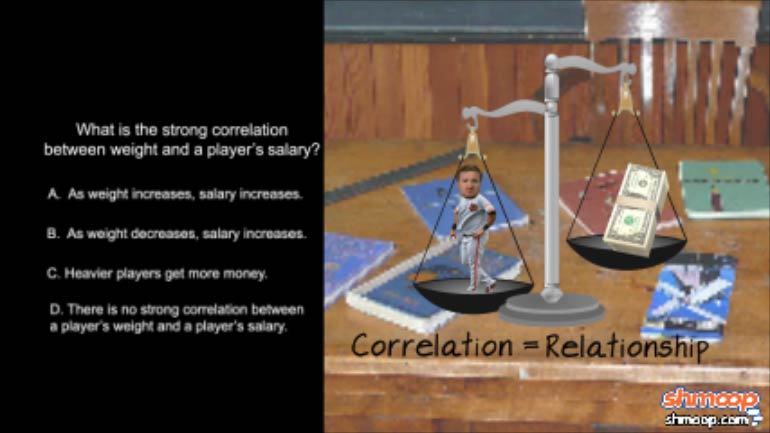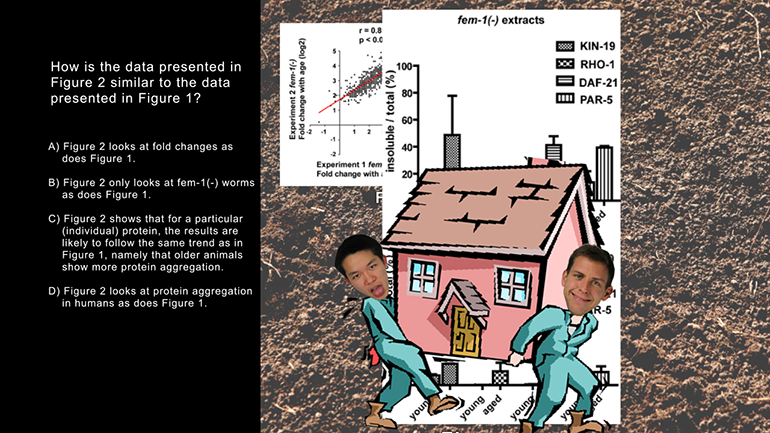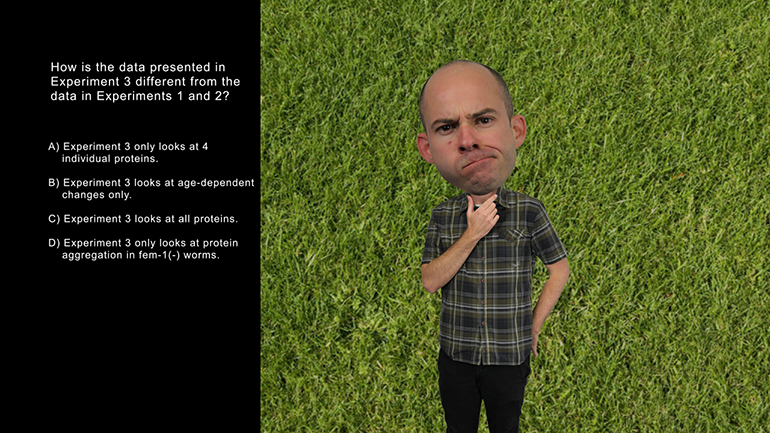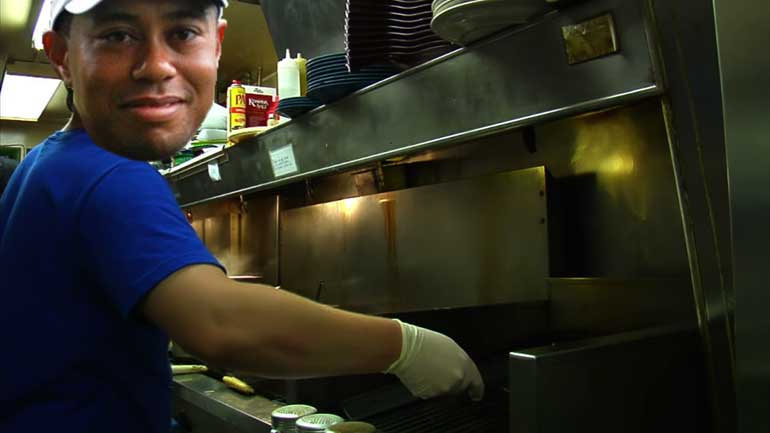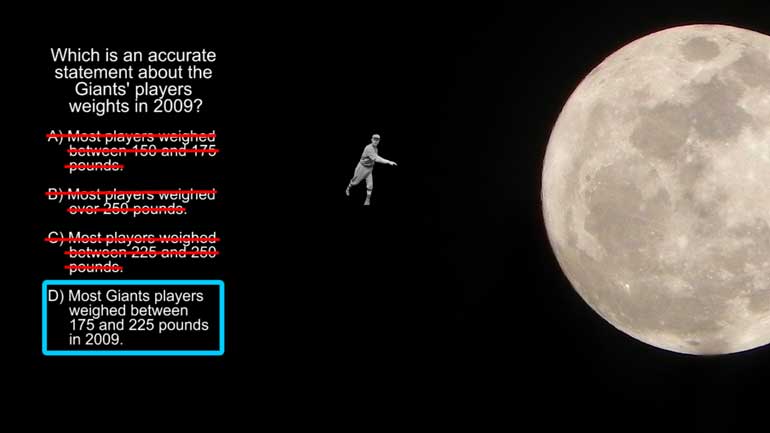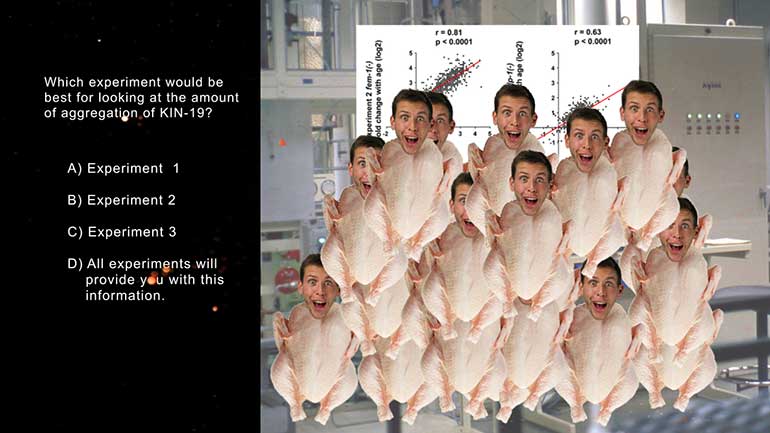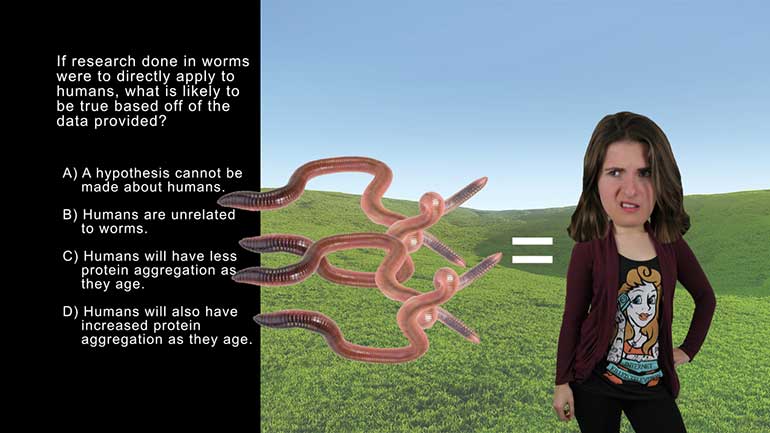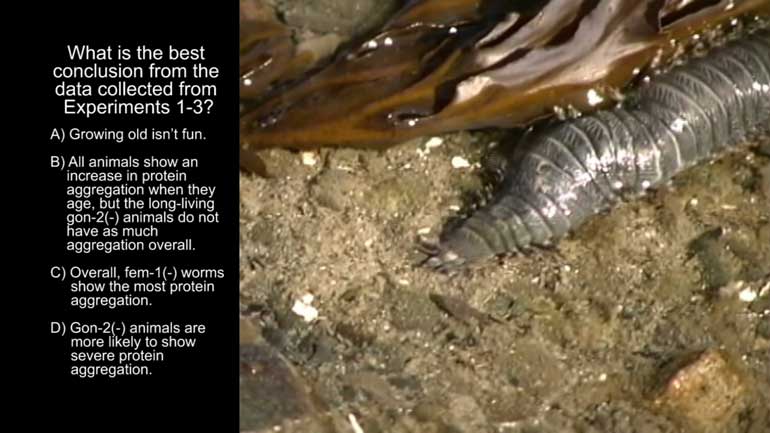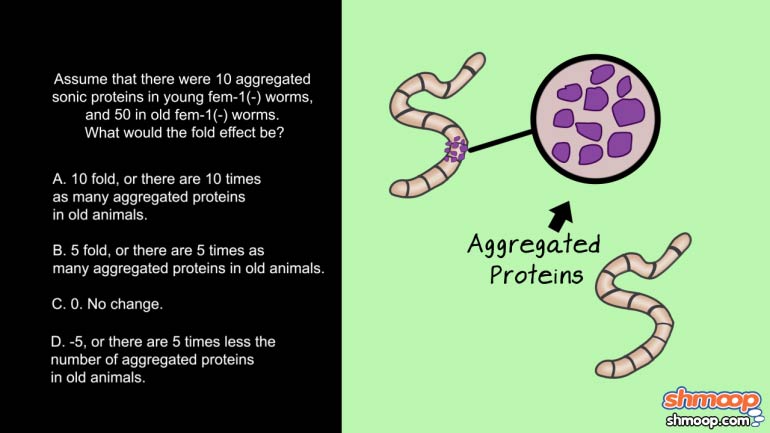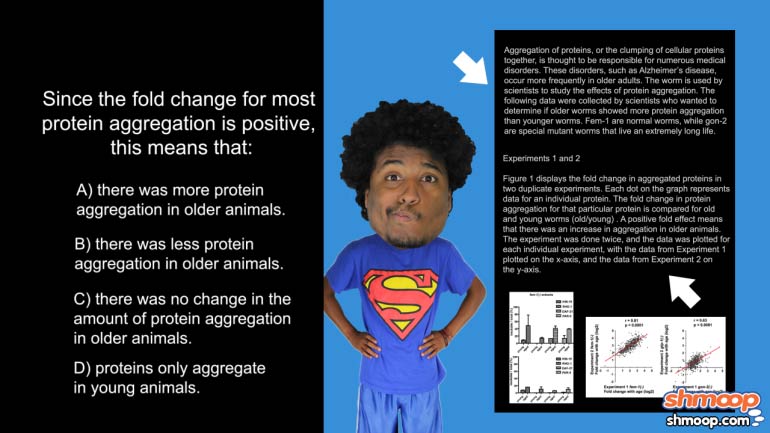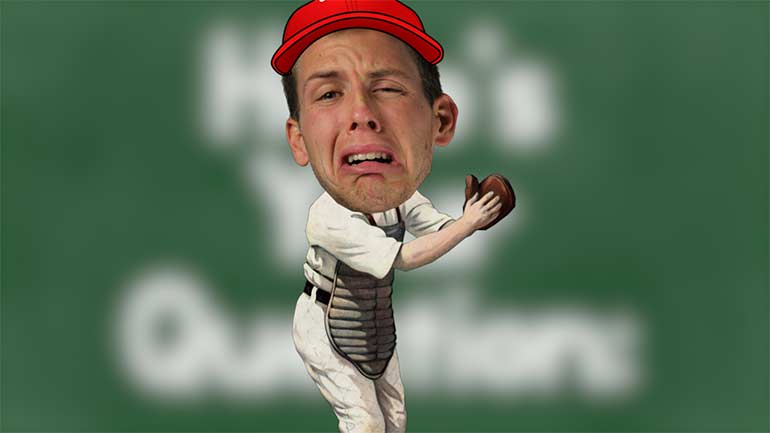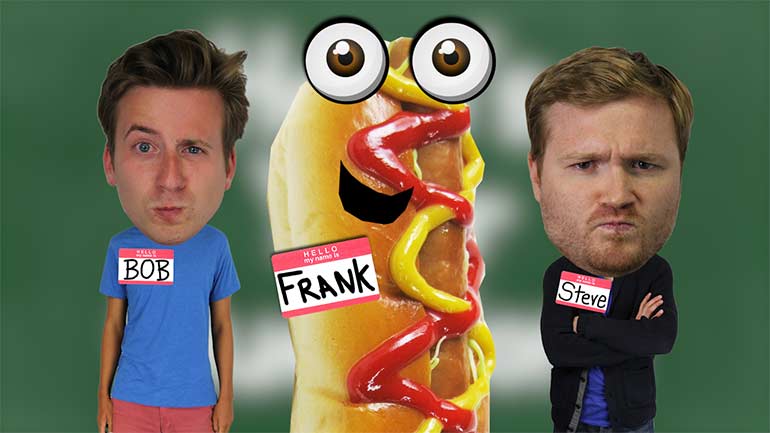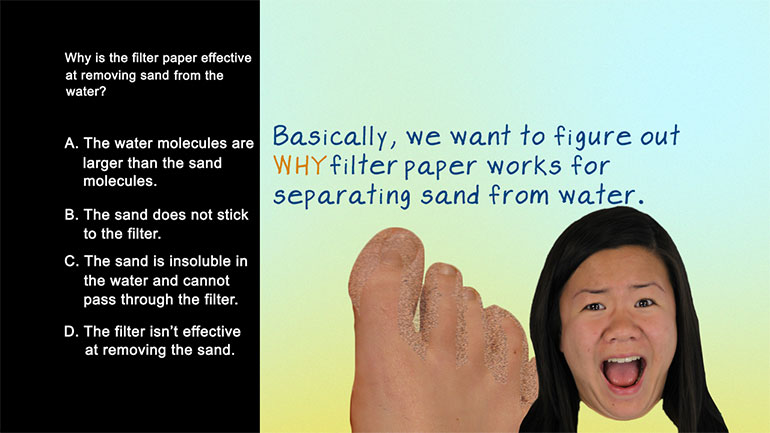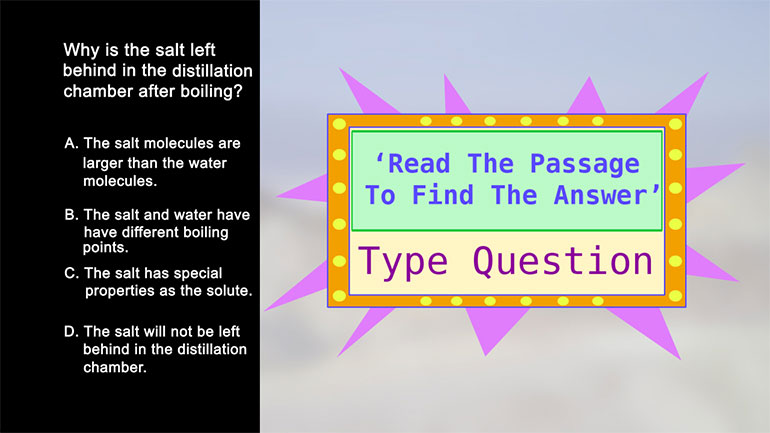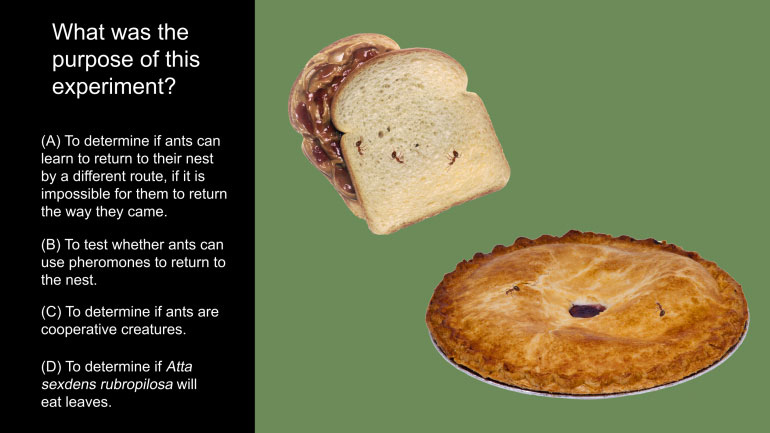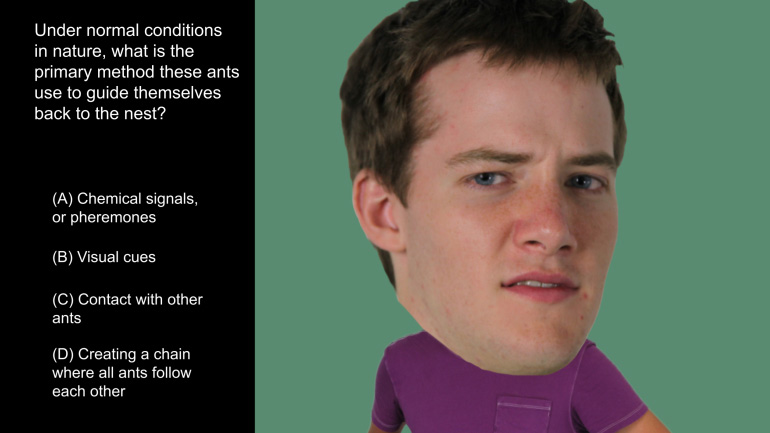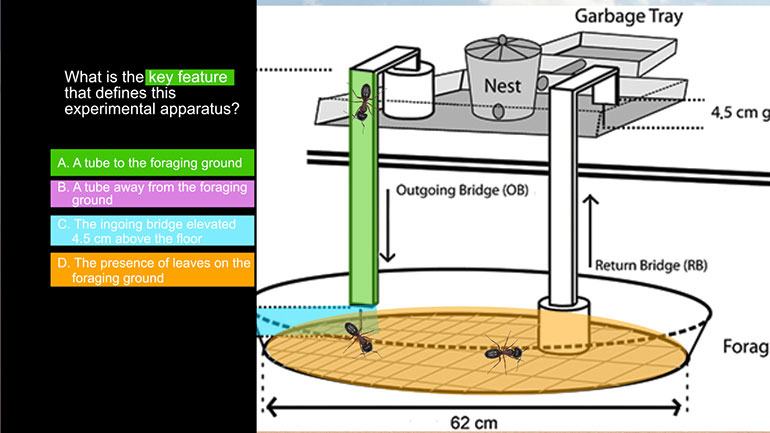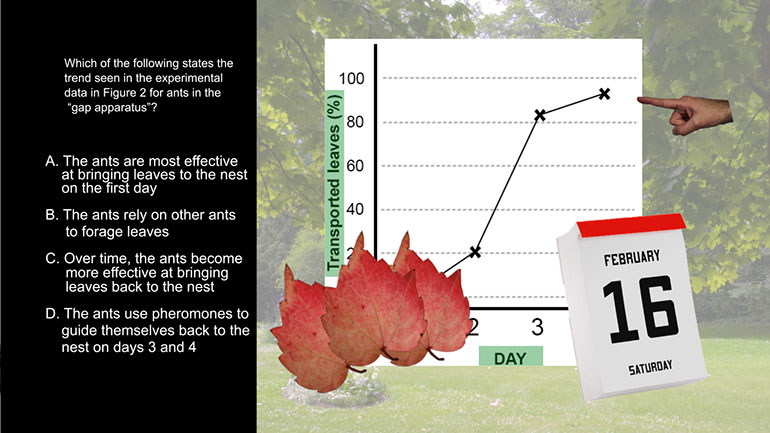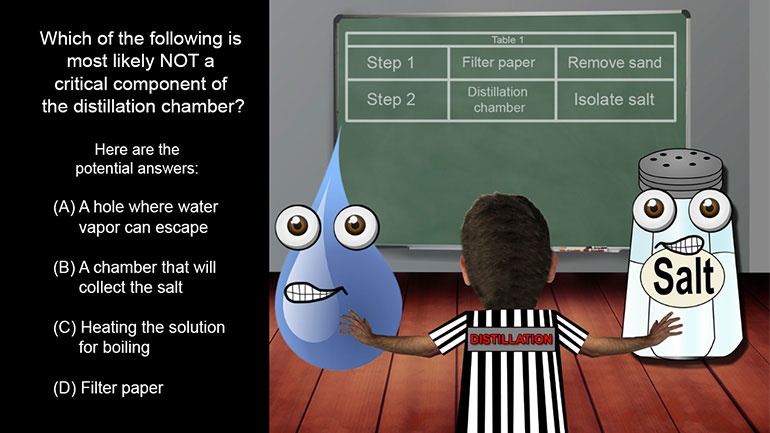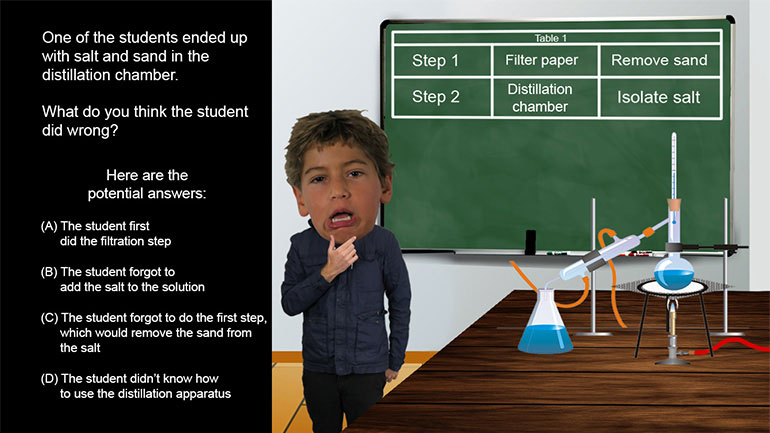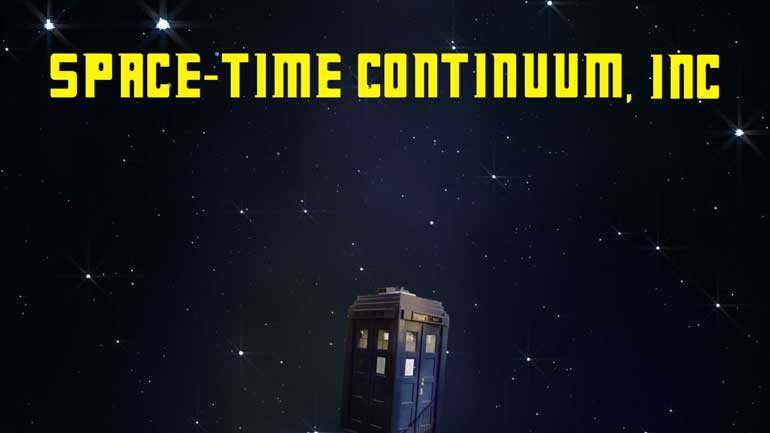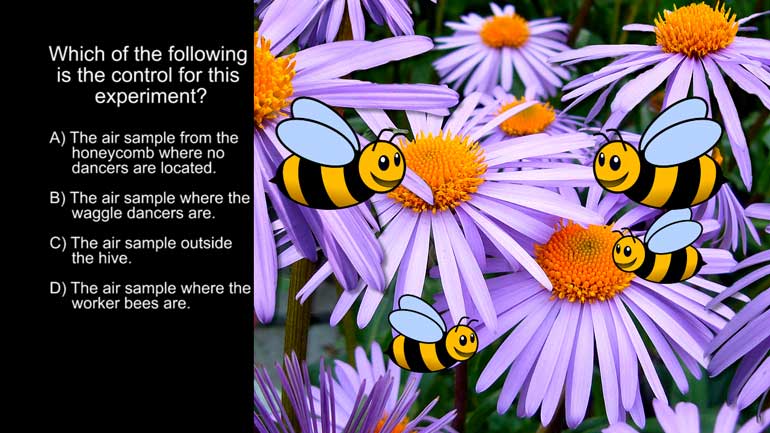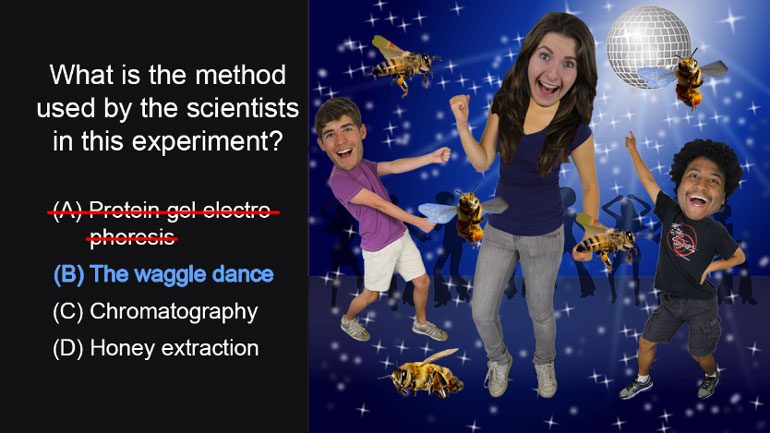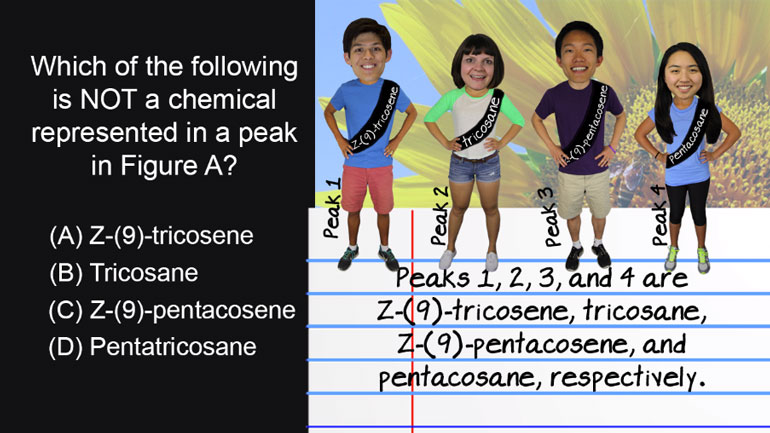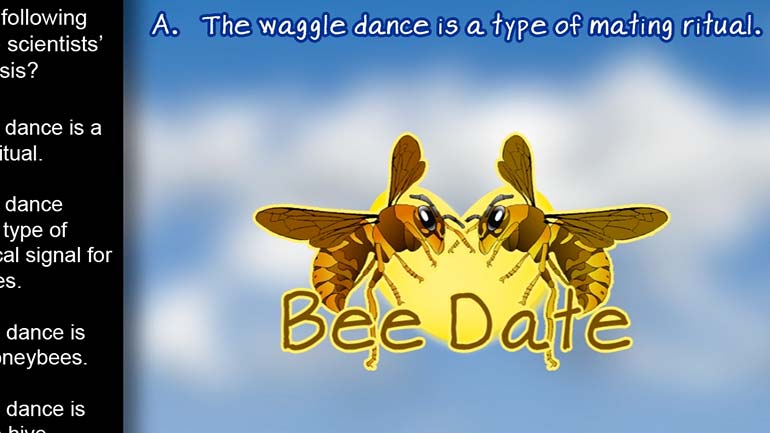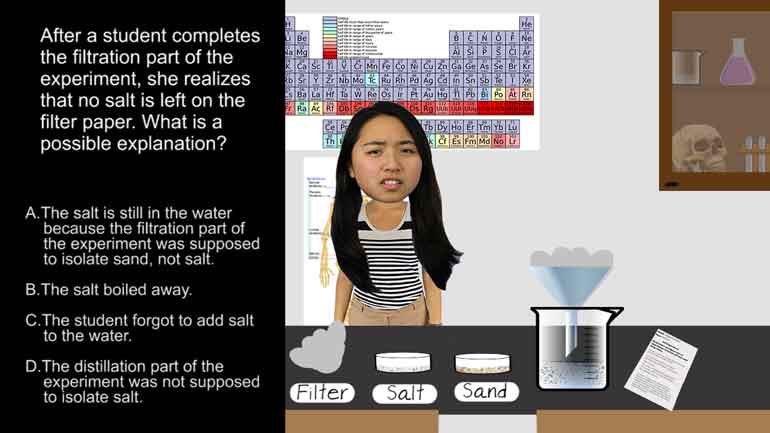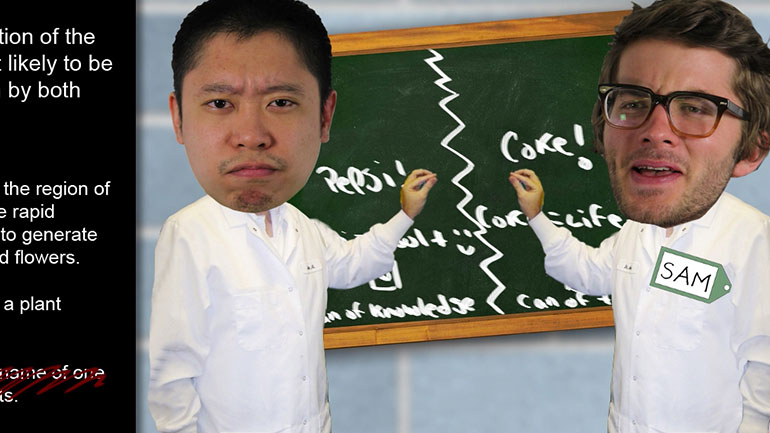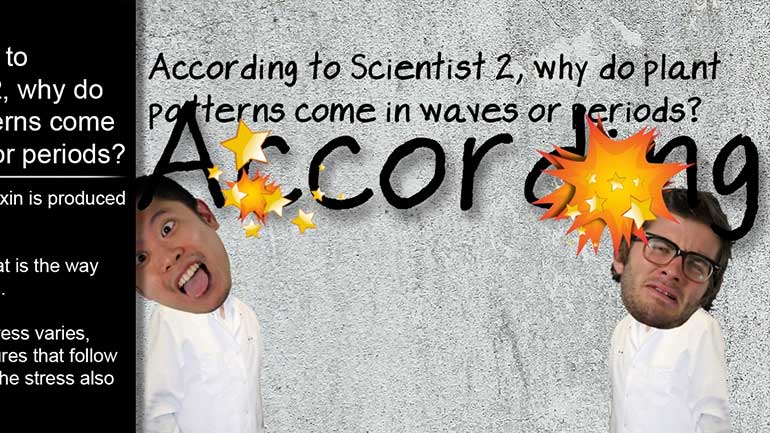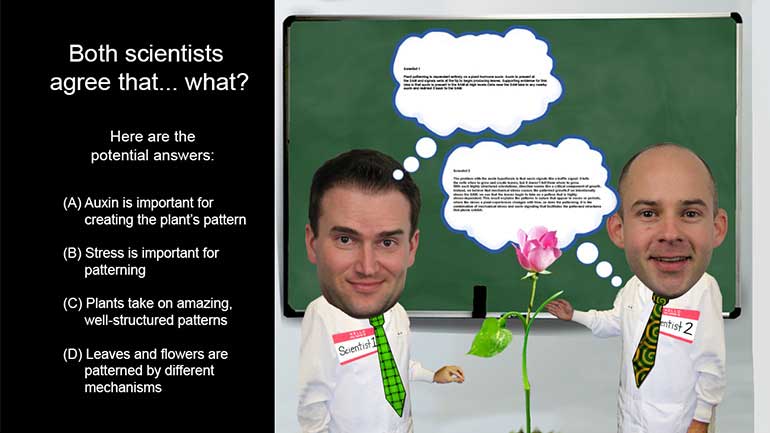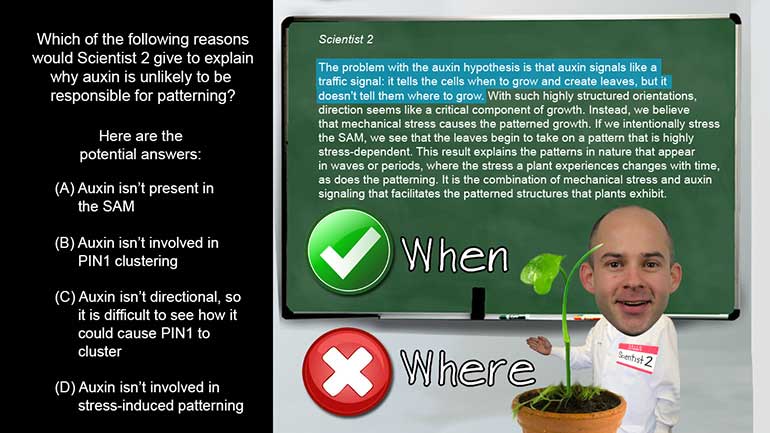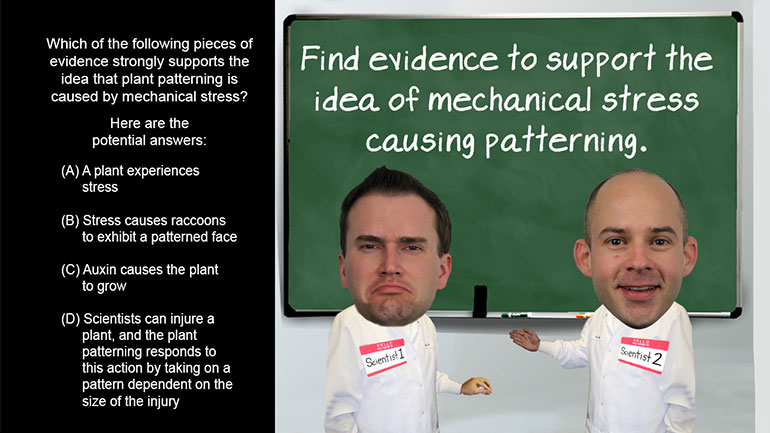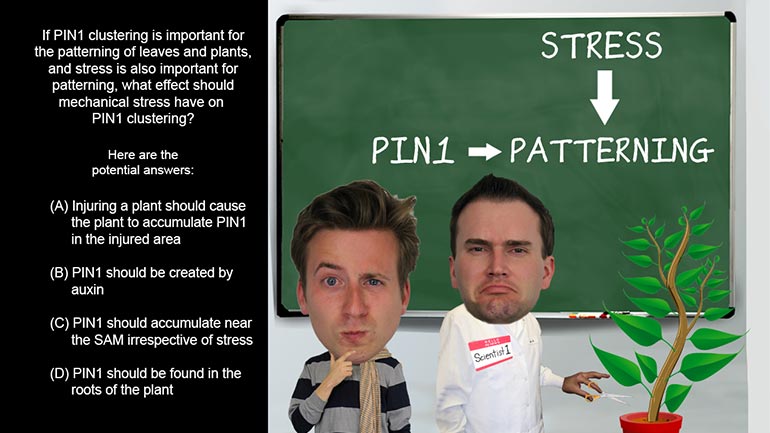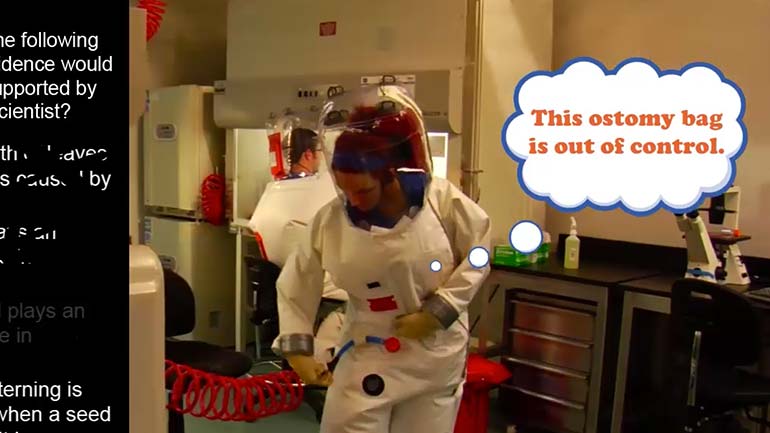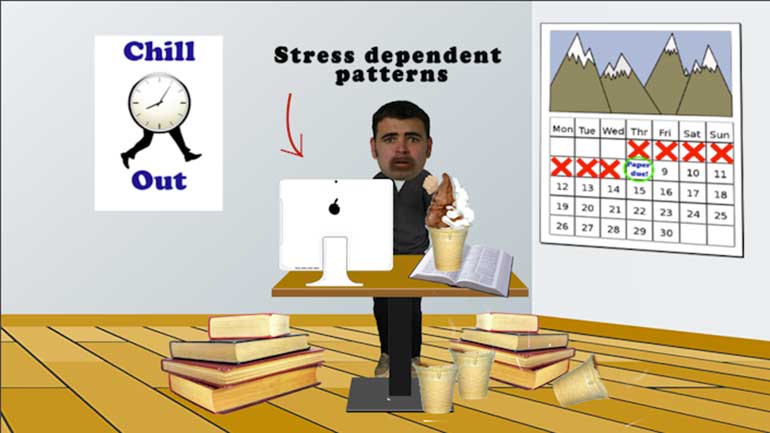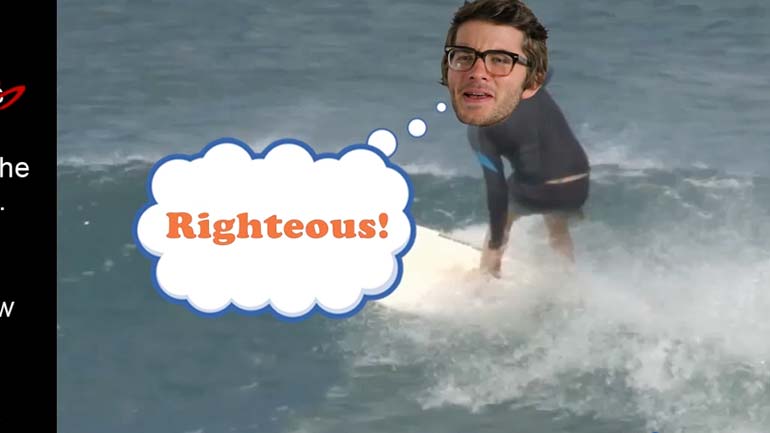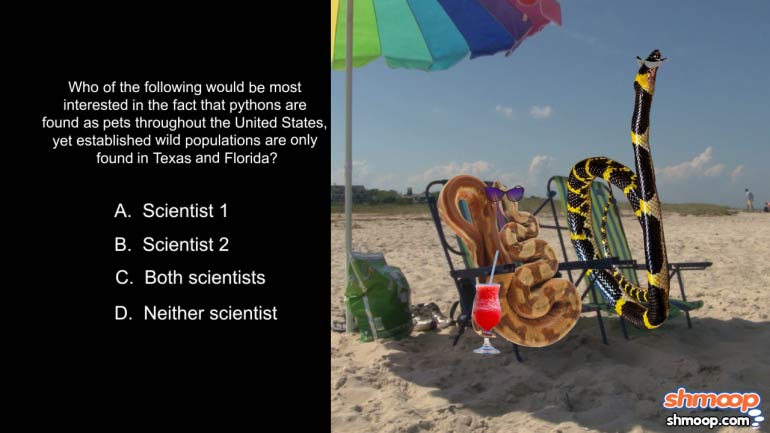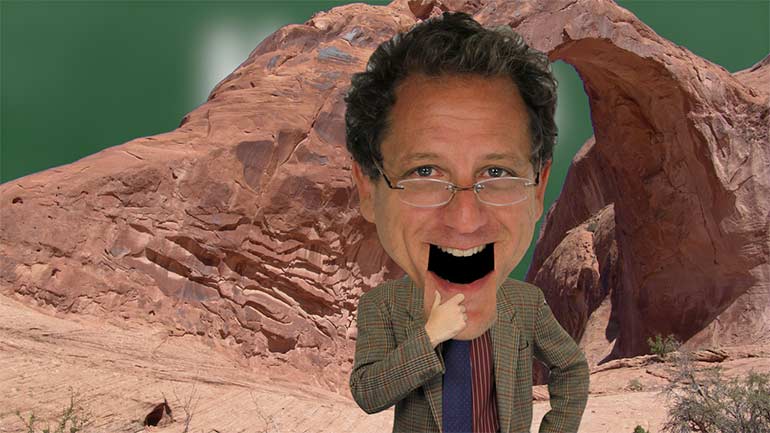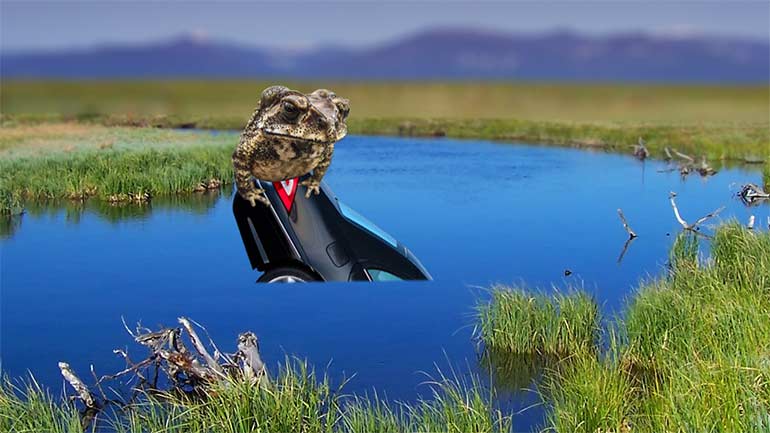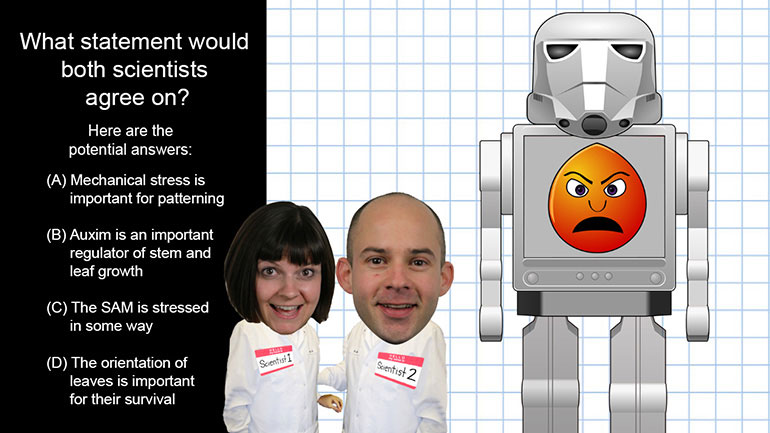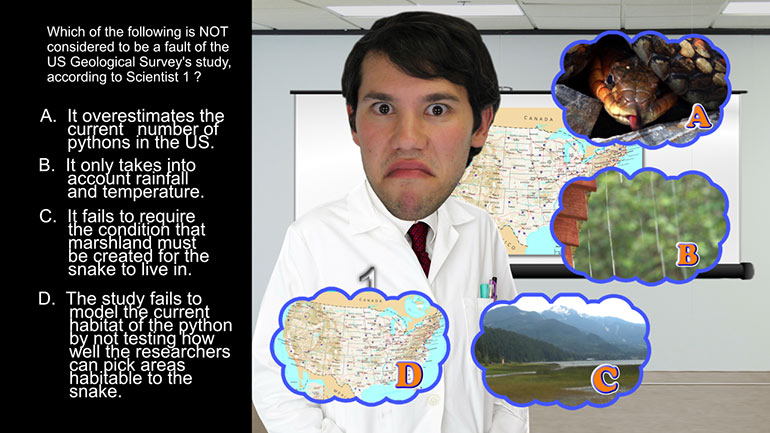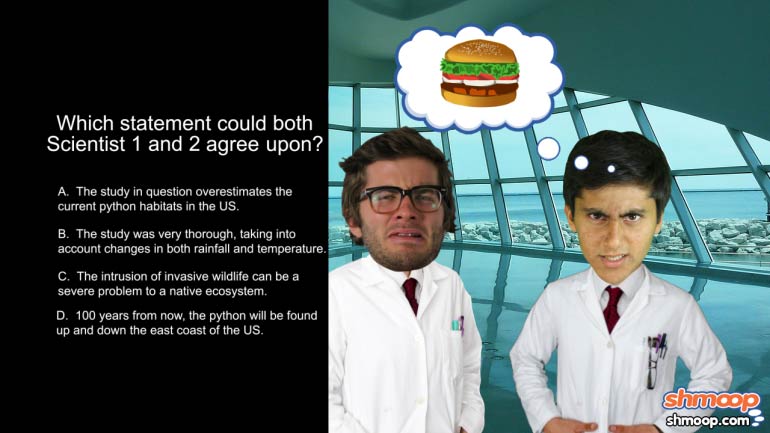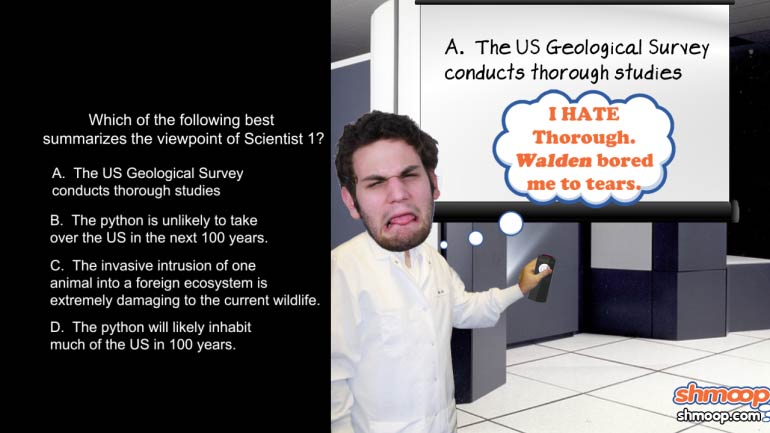ShmoopTube
Where Monty Python meets your 10th grade teacher.
Search Thousands of Shmoop Videos
ACT Science Videos 67 videos
ACT Science: Research Summary Passage Drill 2, Problem 1. Why do you think that the filter paper will not remove the salt from the water?
ACT Science: Data Representation Passage Drill 1, Problem 1. What do the statistics in Figure 1 suggest?
ACT Science: Data Representation Passage Drill 1, Problem 2. Which of the following is a variable in Figure 1, but not in Figure 2?
ACT Science 2.10 Data Representation Passage 200 Views
Share It!
Description:
ACT Science: Data Representation Passage Drill 2, Problem 10. If research done in worms were to directly apply to humans, what is likely to be true based off of the data provided?
Transcript
- 00:03
Here's your shmoop du jour, brought to you by write once read many disk drives.
- 00:09
That's WORM drives.
- 00:16
If research done in worms were to directly apply to humans, what is likely to be true
- 00:23
based off of the data provided?
- 00:26
Here are the potential answers...
Full Transcript
- 00:30
After all the problems we've done about this passage, we now know that worms show an increase
- 00:35
in protein aggregation as they age.
- 00:38
If worms are like humans, like the question says, humans should show a similar phenomenon.
- 00:44
Therefore, we can conclude that humans will also have
- 00:47
increased protein aggregation as they age.
- 00:51
The answer is D.
Related Videos
ACT Science: Research Summary Passage Drill 2, Problem 1. Why do you think that the filter paper will not remove the salt from the water?
ACT Science: Conflicting Viewpoint Passage Drill 1, Problem 1. What statement would both scientists agree upon?
ACT Science: Data Representation Passage Drill 1, Problem 1. What do the statistics in Figure 1 suggest?
ACT Science: Data Representation Passage Drill 1, Problem 2. Which of the following is a variable in Figure 1, but not in Figure 2?
ACT Science Data Representation Passage: Drill 3, Problem 5. According to Figure 2, what birth date will be predicted for an individual actual...
